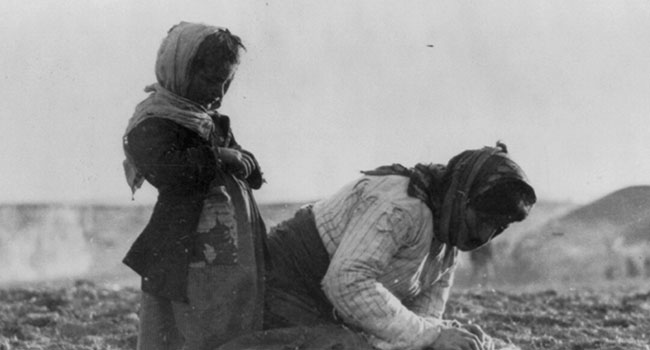 When teaching history, it’s rare that an issue more than 100 years old becomes a current events lesson, but that’s what happened as I began teaching about the Armenian Genocide.
When teaching history, it’s rare that an issue more than 100 years old becomes a current events lesson, but that’s what happened as I began teaching about the Armenian Genocide.
The Ottoman Empire is responsible for the death of 1.5 million Armenians, primarily under the cover of the First World War. The empire collapsed after it lost the war and the new state of Turkey took up the task of denying any wrongdoing.
Today, Turkey stands as a child caught with their hand in a cookie jar saying, “I didn’t do anything.”
But every reputable genocide scholar recognizes what happened to the Armenians in the early part of the 20th century as genocide, as does every reputable state.
Turkey has even gone to the extent of making it illegal to discuss what happened to the Armenians as genocide.
Denial of past genocides, however, is a precursor of future genocides. Adolf Hitler, whose German army was complicit in the crimes of the Ottomans, purportedly asked his generals before invading Poland, “Who, after all, speaks today of the annihilation of the Armenians?”
Over the last several years, Turkey’s ally Azerbaijan, a dictatorship that also denies the Armenian Genocide, has been using oil revenue to build its military. It has been supplied by Turkey and several other countries with questionable human rights records.
Azerbaijan recently invaded its neighbour, the Armenian Republic of Artsakh, also known by its Soviet-era name Nagorno-Karabakh. The Republic of Armenia, which also borders Azerbaijan, is allied with Artsakh but doesn’t have anywhere near the military power of Turkey or even Azerbaijan.
No side is innocent in a military conflict, so I assumed that Armenian Prime Minister Nikol Pashinyan was exaggerating when he said, “Why has Turkey returned to the South Caucasus 100 years later? To continue the Armenian Genocide.”
My opinion changed as I began researching the conflict. The not-for-profit website Genocide Watch, which I’ve always found to be a very objective source for information, has declared a “Genocide Emergency Alert” in reference to Azerbaijan’s invasion of Artsakh.
The world proclaimed “never again” after we became aware of the Holocaust. In order to achieve this, Genocide Watch recommends the following:
- The United Nations Security Council should demand that Azerbaijan stop all offensive attacks in Artsakh.
- The Security Council should impose an embargo on sale of arms to Azerbaijan.
- A UN peacekeeping force should be positioned to stop attacks by Azerbaijan against Artsakh.
- World leaders should condemn hate speech and genocide denial by the Azerbaijani regime.
- American and Russian leaders should broker an effective peace agreement between Azerbaijan, Artsakh and Armenia.
- All sides should honour a genuine ceasefire to protect civilians from this genocidal national, ethnic and religious war.
There’s hope for a peaceful resolution to this conflict and the prevention of genocide. Russia is historically an ally of Armenia, and Turkey has been souring its relationship with several other permanent members of the Security Council in recent months.
This could be an historic moment of effective UN intervention, as long as the world’s largest arms producers (most of whom are ironically among the permanent members of the Security Council) can prioritize the well-being of people above their opportunity to gain further profits.
It’s important to remember the role of a country like Canada in this issue. We’re a respected member of the United Nations and a strong ally of several of the major players in this conflict.
We’re also in the midst of a global pandemic and are heading into the winter months. Putting the health of the people in the South Caucasus at risk puts us all at risk. Diseases are known to spread and mutate rapidly in refugee camps and diseases don’t recognize international boundaries.
The Armenian Genocide is as real today as it was 100 years ago. It’s time to end it.
Troy Media columnist Gerry Chidiac is an award-winning high school teacher specializing in languages, genocide studies and work with at-risk students.
For interview requests, click here. You must be a Troy Media Marketplace media subscriber to access our Sourcebook.
The views, opinions and positions expressed by columnists and contributors are the author’s alone. They do not inherently or expressly reflect the views, opinions and/or positions of our publication.


